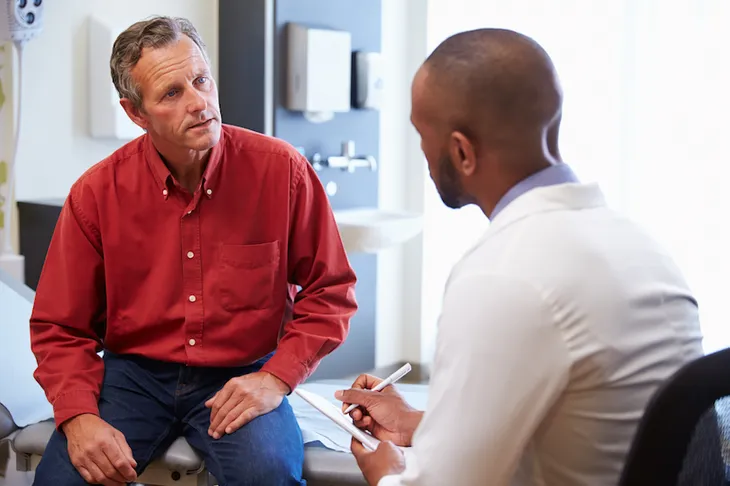If you’ve just been diagnosed with cancer, there’s a good chance you’re experiencing a range of emotions, from anxiety to denial, anger and fear. No matter how chaotic things feel, however, it’s important to remember that there are plenty of things about your diagnosis that are within your control.
Consider following these steps post-diagnosis to gain a better understanding of what you’re facing and how you can take care of yourself, mentally and physically, on the journey ahead.
1. Get a Second Opinion
Fully understanding the type of cancer you have and what treatment options are available to you is important — and sometimes the best way to do that is to speak to more than one practitioner. A second opinion can help you make a more informed decision. It may even expose you to treatment options you didn’t know were available, particularly if that second opinion comes from a physician who specializes in your type of cancer.
It’s important to not just understand which therapy will give you the best chance of survival, but also which will have the fewest side effects. That being said, there’s no need to waste time and valuable energy seeing one specialist after another. According to the Mayo Clinic, two is typically enough.
2. Educate yourself
Treatment for cancer and its various forms is constantly evolving. Previously, surgery was a common go-to, but doctors are moving towards less invasive treatments whenever possible. Depending on the type of cancer you have, your doctor may recommend radiation, chemotherapy, Cancer Immunotherapy or even a combination of a few different treatments.
Most of us are familiar with radiation and chemotherapy, but Cancer Immunotherapy is another valuable treatment option to consider. Also known as “biological therapy,” Cancer Immunotherapy can be administered orally, topically or intravenously, and may strengthen or boost the immune system’s natural ability to fight cancer cells. Immuno-oncology drugs are prescribed for many kinds of cancer, including lung cancer and melanoma. They may also be used in conjunction with other treatments, delivering toxins (such as radiation or chemotherapy) directly to the cancer cells.
3. Stay Connected
It’s natural to feel stressed when dealing with a chronic illness like cancer, but it’s crucial that this stress doesn’t lead to social isolation. During this difficult time, you should make a concerted effort to build up and stay connected with your support network.
If talking to friends and family feels difficult, you may find some solace in a support group. It can be comforting to spend time with people who understand what you’re going through first-hand. They can also help you come to terms with what you’re going through — and there are all types of groups available to you, from individual counselling to one-on-one peer support.
4. Express Yourself
Sometimes words might not be enough to express how you’re feeling. If that’s the case, pick up a journal, some art supplies or even an instrument. Research shows that art therapy can reduce stress, anxiety and depression, and even enhance your coping skills.
5. Practice Meditation
The benefits of meditation are no secret. There are countless studies that show meditation and mindfulness may positively impact our mental and physical health by reducing stress, contributing to healthier sleep patterns, improving overall mood and even reducing anxiety and depression.
6. Take Care of Yourself
As important as staying connected to friends and family and keeping busy with artistic and meditative activities can be, it’s also important not to forget about the little things. Humans are creatures of habit and maintaining as normal of a routine as possible throughout your treatment could help reduce stress and contribute to better sleep and overall health. This means keeping up things like eating breakfast and exercising (if your doctor okays it) around the same time every day.
Understanding what aspects of your cancer diagnosis you have control over can make a huge difference in how you cope with it. Educating yourself about treatment options, establishing a strong network of family and friends and caring for yourself through artistic expression, meditation and routine are important steps to take post-diagnosis — but above all, they’re crucial ways to remain optimistic while facing the challenges that lay ahead.






